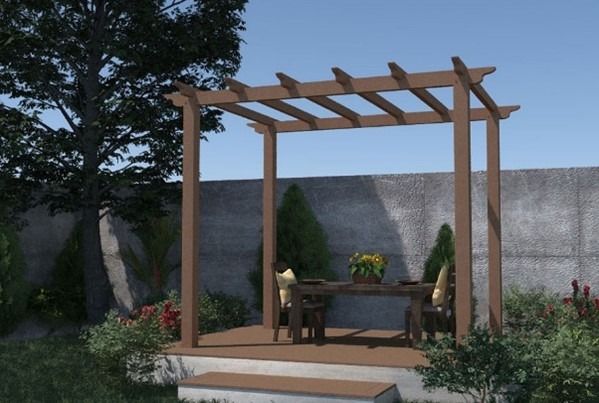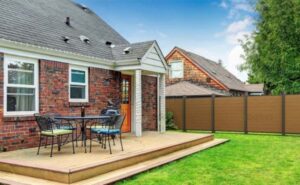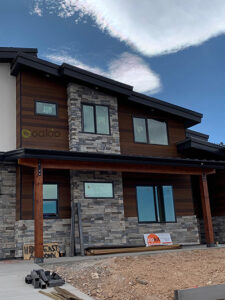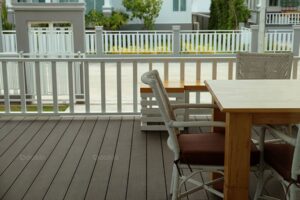How to Choose the Best Outdoor Pergola?
Pergolas serve as elegant and functional additions to outdoor spaces, providing shade, architectural interest, and a welcoming ambiance. When it comes to selecting the best outdoor pergola, homeowners are faced with a myriad of options in terms of design, materials, and features. From traditional wooden pergolas to modern composite structures, each type offers unique benefits and considerations. This comprehensive guide explores key factors to consider when choosing the best outdoor pergola for your home.
How to Choose the Best Outdoor Pergola
When you are choosing outdoor pergola for your house, you can consider the following tips that may help you make informed decision:
1. Determine Your Design Preferences
Before delving into material considerations, it’s essential to determine your design preferences for the outdoor pergola. Consider factors such as architectural style, size, shape, and aesthetic features. Whether you prefer a sleek and contemporary design or a more traditional and rustic look, understanding your design preferences will help narrow down your options and guide the selection process. Now there are some popular pergola type in the market, like freestanding pergola, attached pergola, arched pergola, louvered pergola, and awning pergola. You can choose according to your preferences.
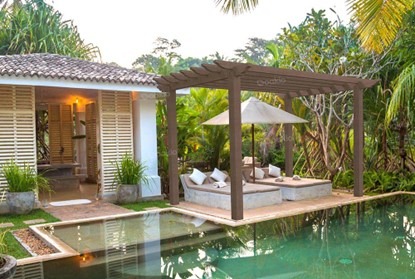
2. Evaluate Material Options
Pergolas not only vary in appearance but also in the materials used for their construction. The choice of material significantly affects the pergola’s longevity, maintenance needs, and overall cost.
– Wood Pergolas
Wood is the most common and cost-effective material for pergolas. Cedar is a popular choice due to its durability and value for money, while redwood offers superior quality. However, wood pergolas require periodic restaining or repainting to prevent rot and pest infestation, leading to additional maintenance costs over time.
– Wood Plastic Composite (WPC) Pergolas
Wood plastic composite is made from recycled material like wood fiber and plastic. WPC pergolas combine wood fibers with plastic polymers to create a durable and weather-resistant material. WPC pergolas offer the natural look and feel of wood with the added benefits of composite technology. With its durability, aesthetic wood grain, and low maintenance cost, WPC has become a popular alternative to wood in recent years. Oakio’s WPC pergola will be a good option if you are searching for the wood alternative since wood may be easier to decay and difficult to maintain.
– Vinyl Pergolas
Vinyl pergolas are known for their low maintenance requirements compared to wood. With just occasional power washing, vinyl pergolas can last for many years. However, high-quality vinyl can be relatively expensive.
– Aluminum Pergolas
Aluminum pergolas offer a modern aesthetic with elegant shapes and clean lines, making them suitable for contemporary landscapes. Like vinyl, aluminum requires minimal maintenance and is resistant to rust.
– Steel Pergolas
Steel provides a modern look to pergolas, albeit with a heavier, industrial appearance compared to aluminum. While steel is durable and sturdy, it can rust when exposed to humidity and rain, necessitating rust protection measures.
– Fiberglass Pergolas
Fiberglass pergolas are low-maintenance, weather-resistant, and long-lasting. They can be painted to complement the landscape and hold paint well. Since fiberglass does not rust or corrode, cleaning and treating the pergola are not frequent tasks. However, fiberglass pergolas tend to be more expensive.
– Concrete Pergolas
Custom poured or precast concrete pillars can lend a classic or contemporary appearance to pergolas. Concrete structures are exceptionally durable and require minimal maintenance, typically limited to periodic cleaning and repair of chips and cracks. Concrete pergolas offer longevity and timeless appeal, reminiscent of ancient architectural styles.
3. Consider Maintenance Requirements
When choosing the best outdoor pergola, consider the level of maintenance you’re willing to commit to. One of the primary advantages of WPC pergolas is their low maintenance requirements compared to traditional wood pergolas. WPC pergolas typically require periodic cleaning with soap and water to maintain their appearance and integrity. Additionally, inquire about any specific maintenance recommendations from the manufacturer to ensure the longevity of your pergola.
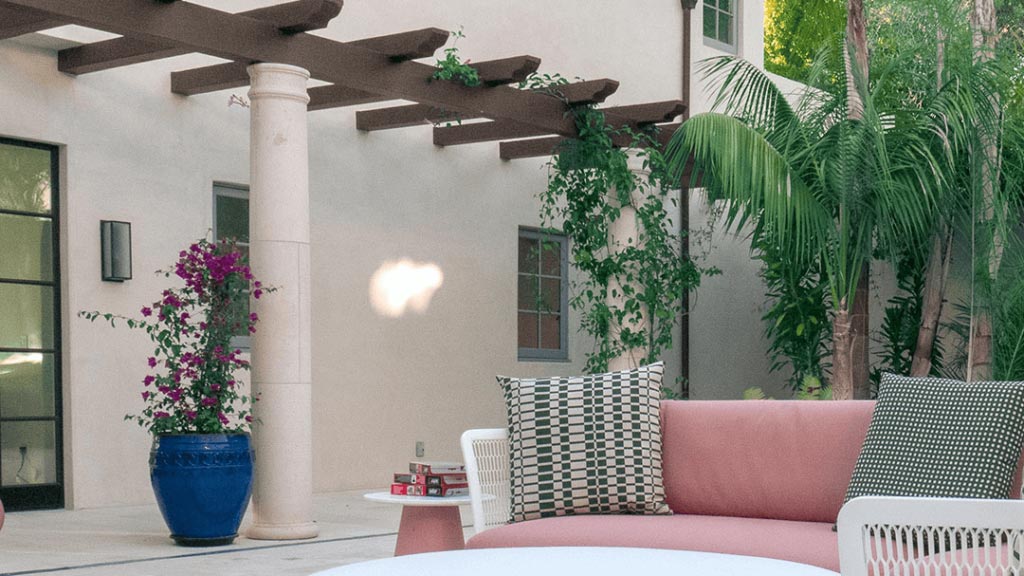
4. Assess Long-Term Durability
Durability is a crucial consideration when selecting the best outdoor pergola for your home. Look for pergolas constructed from high-quality composite materials that are engineered to withstand the elements and resist fading, warping, and deterioration over time. Consider factors such as UV resistance, temperature stability, and structural integrity when assessing the long-term durability of composite pergolas.
5. Evaluate Customization Options
Many manufacturers offer customization options for outdoor pergolas, allowing homeowners to personalize their pergola to suit their specific needs and preferences. Consider features such as integrated lighting, retractable canopies, decorative end caps, and architectural embellishments when evaluating customization options for your pergola. Customized pergolas can enhance the functionality, aesthetics, and overall appeal of your outdoor space.
6. Seek Warranty Coverage
When investing in an outdoor pergola, it’s essential to seek warranty coverage from the manufacturer. A comprehensive warranty provides peace of mind and protection against defects, structural issues, and premature wear and tear. Review the terms and conditions of the warranty, including coverage duration, limitations, and exclusions, to ensure that your pergola is backed by reliable warranty protection.
7. Compare Price and Value
Finally, compare the price and value of different outdoor pergola options to find the best fit for your budget and requirements. While WPC pergolas may have a higher upfront cost compared to traditional wood pergolas, they offer long-term savings in terms of maintenance, repairs, and replacement costs. Consider the overall value, durability, and performance of the pergola when assessing its price relative to its features and benefits.
Conclusion
Choosing the best outdoor pergola requires careful consideration of design preferences, material options, maintenance requirements, durability, customization options, warranty coverage, and price-value considerations. By evaluating these factors and conducting thorough research, homeowners can select a composite pergola that enhances the beauty, functionality, and enjoyment of their outdoor living space for years to come. With the right outdoor pergola, you can create a captivating and inviting oasis where you can relax, entertain, and create lasting memories with family and friends.
Trending Reading
What Are the Differences Between the WPC Board and PVC Board?
[2024 Update] How Long Does WPC Decking Last?
